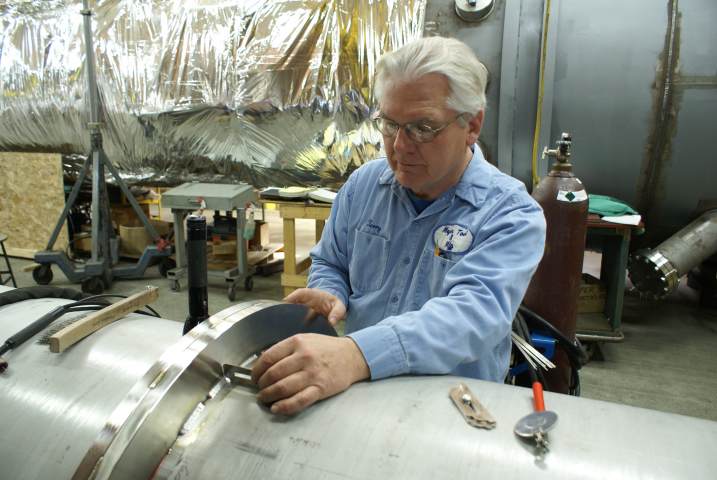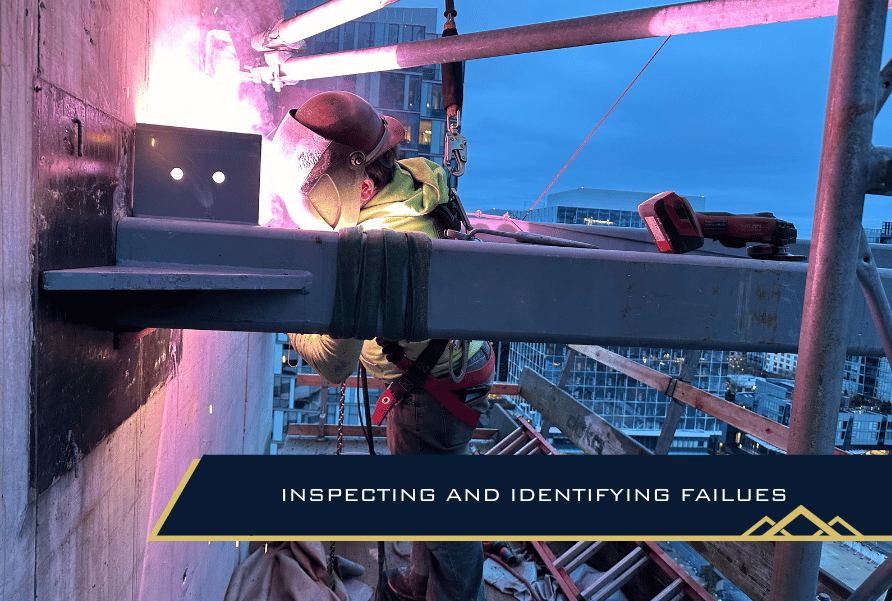Expert Welding Inspection Services in Gilbert Arizona: What You Required to Know
Expert Welding Inspection Services in Gilbert Arizona: What You Required to Know
Blog Article
The Influence of Extensive Welding Inspection on Sector Criteria: Promoting Security, Dependability, and Conformity Across Numerous Sectors
The function of rigorous welding inspection is significantly recognized as a crucial element in improving industry standards, where integrity, compliance, and safety and security take precedence across varied sectors. What changes might we anticipate in welding techniques as the need for top quality and safety and security heightens?
Value of Welding Inspections
Identifying the important role of welding examinations in maintaining high quality and safety criteria, sector experts focus on these analyses to guarantee structural stability. Welding assessments work as a crucial checkpoint in the fabrication procedure, recognizing defects that might jeopardize the toughness and security of welded frameworks. By systematically examining welds, inspectors can discover issues such as incomplete penetration, porosity, and cracks, which might not show up to the nude eye.
The significance of these examinations prolongs past simple conformity; they are vital for protecting lives and shielding financial investments. In essential sectors such as production, aerospace, and construction, a single malfunctioning weld can bring about devastating failings, causing both financial loss and human casualties. Implementing strenuous assessment methods reduces these threats and boosts overall task integrity.
Additionally, regular welding inspections foster a society of top quality across organizations, motivating welders to stick to best practices and maintain high standards in their work. This commitment to top quality not just enhances functional efficiency but likewise reinforces the track record of companies within their corresponding markets. Thus, welding assessments are crucial in advertising safety and security, integrity, and compliance throughout numerous markets.
Secret Industry Standards and Laws
The framework of welding assessments is underpinned by a robust set of sector standards and regulations that govern techniques throughout different sectors. Key establishments, such as the American Welding Society (AWS) and the International Company for Standardization (ISO), develop standards that make certain top quality and safety in welding procedures. AWS D1.1 details important demands for welding steel structures, while ISO 3834 specifies high quality demands for blend welding.
In addition to these certain requirements, industry policies like the American National Standards Institute (ANSI) and Occupational Security and Health Management (OSHA) requireds even more enhance compliance by setting security methods and operational ideal techniques. These guidelines are vital in industries such as production, aerospace, and building and construction, where welding honesty is vital.
In addition, sector-specific standards, such as those from the American Society of Mechanical Engineers (ASME) for stress vessels, give additional layers of analysis to ensure that welds fulfill rigorous safety and security and efficiency requirements. Adherence to these criteria not only assists in regulatory conformity however additionally promotes a society of top quality and dependability throughout the welding sector, ultimately guarding public welfare and improving functional effectiveness.

Benefits of Compliance and Dependability
Consistently sticking to industry criteria and laws in welding evaluations returns substantial benefits, boosting overall integrity and performance. The leading advantage is the guarantee of quality in welded joints, which directly contributes to the security of frameworks and tools. Compliance with well-known requirements reduces the danger of failure and catastrophic events, consequently securing both human life and useful possessions.
Furthermore, organizations that focus on strenuous welding assessments foster a culture of liability and professionalism and trust. This dedication not just boosts the credibility of the firm however likewise instills confidence in customers and stakeholders regarding the honesty of services and products. Trustworthy welding procedures result in minimized costs linked with rework, repairs, and possible lawful liabilities originating from substandard craftsmanship.
Furthermore, keeping compliance with sector requirements facilitates smoother regulatory communications, as organizations can conveniently demonstrate adherence to necessary procedures (Welding Inspection Gilbert Arizona). This proactive technique can bring about advantageous partnerships and chances within the industry, as well as access to new markets
Difficulties in Welding Inspection
Browsing the complexities of welding evaluation provides a myriad of difficulties that can impede compliance with industry standards. The absence of standard training for inspectors can result in diverse interpretations of assessment standards, which may jeopardize security and reliability.
One more challenge depends on the access of sophisticated examination tools - Welding Inspection Gilbert Arizona. While innovations such as ultrasonic testing and radiography can boost detection abilities, their execution may be limited by expense or availability, especially in smaller sized procedures. This disparity can result in a dependence on much less reliable inspection approaches, raising the risk of undiscovered imperfections
Furthermore, the hectic nature of modern manufacturing usually stress assessors to focus on speed over thoroughness, great site possibly ignoring essential flaws. Finally, governing conformity can be daunting because of the evolving nature of market standards, leaving organizations struggling to stay on top of the most up to date requirements. These obstacles require continual enhancement in evaluation practices to guarantee the stability of welded frameworks throughout various sectors.
Future Trends in Welding Practices
Arising innovations and progressing methods are readied to change welding techniques in the coming years. Advancements in automation, such as robotic welding systems, are acquiring grip, enhancing precision and effectiveness while decreasing human mistake. These systems will certainly not only speed up production however likewise assist in consistent quality assurance, attending to a few of the difficulties dealt with in manual welding.
Furthermore, the combination of synthetic intelligence (AI) and artificial intelligence right into welding procedures is positioned to change assessment and surveillance. Real-time information analytics will make it possible for anticipating maintenance, allowing for proactive interventions that decrease downtime and increase safety and security. Furthermore, enhanced truth (AR) and virtual reality (VIRTUAL REALITY) technologies are ending up being crucial in training welders, offering immersive experiences that improve skill development without the risks connected with standard approaches.
Sustainability is additionally a crucial trend, as markets look for greener techniques. The fostering of environmentally friendly products and techniques, together with energy-efficient machinery, will likely end up being this contact form common. As industries adapt to these changes, the emphasis will move toward greater compliance with safety and security and environmental laws, making sure that welding practices not only fulfill current requirements however additionally lead the way for a more secure and more lasting future.

Verdict
In conclusion, strenuous welding inspections dramatically enhance market standards by guaranteeing safety and security, integrity, and compliance across various fields. As markets continue to prioritize functional stability, the value of thorough evaluations will just raise, inevitably profiting organizations and society at large.
The role of rigorous welding assessment is significantly recognized as an essential component in improving sector requirements, official website where reliability, conformity, and safety and security take precedence throughout diverse markets. Thus, welding examinations are vital in advertising safety and security, integrity, and compliance throughout various markets.
Secret organizations, such as the American Welding Culture (AWS) and the International Company for Standardization (ISO), establish guidelines that make certain high quality and security in welding operations. AWS D1.1 outlines crucial requirements for welding steel frameworks, while ISO 3834 specifies quality requirements for fusion welding.
In verdict, strenuous welding examinations substantially improve sector standards by making certain security, integrity, and conformity throughout various industries.
Report this page